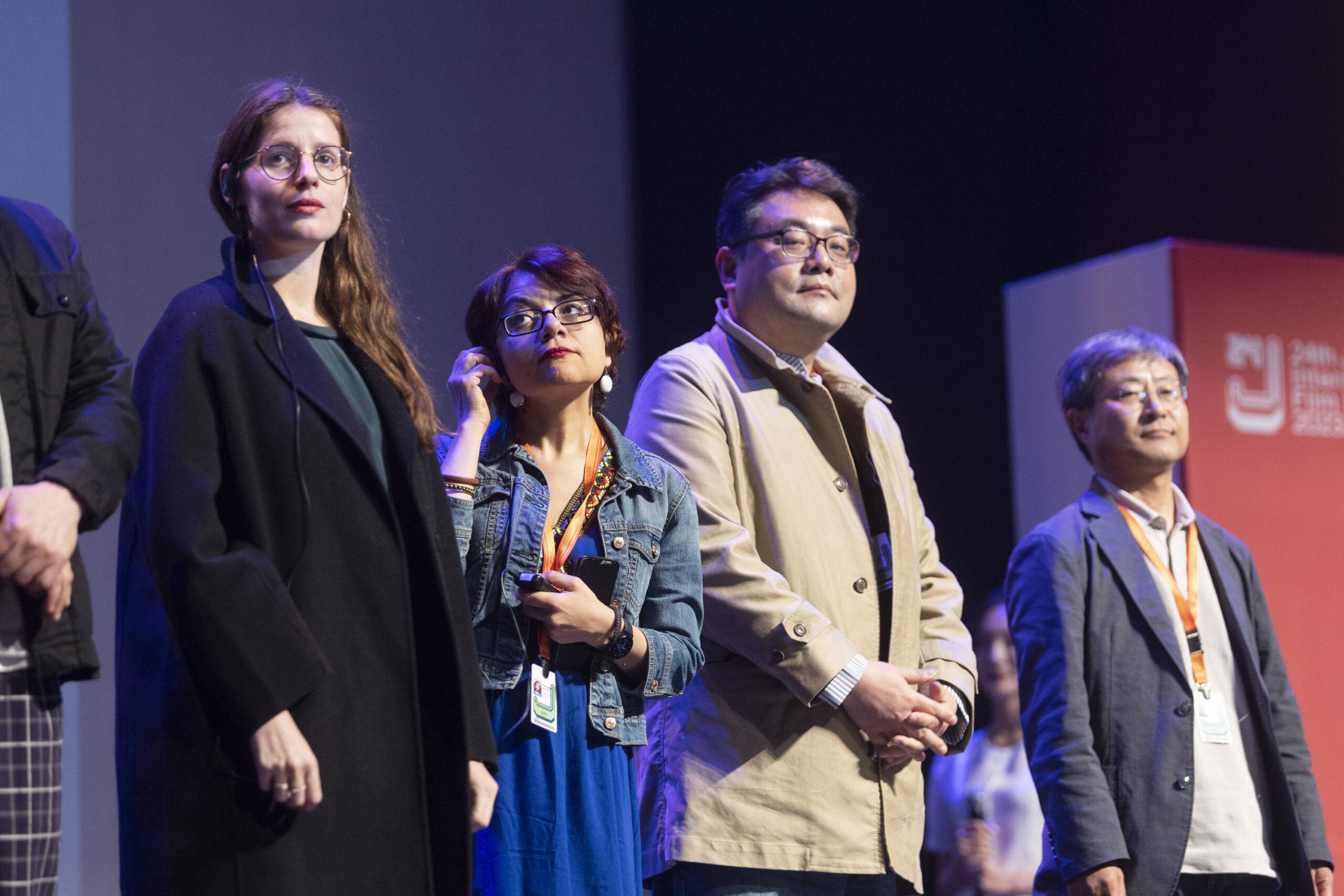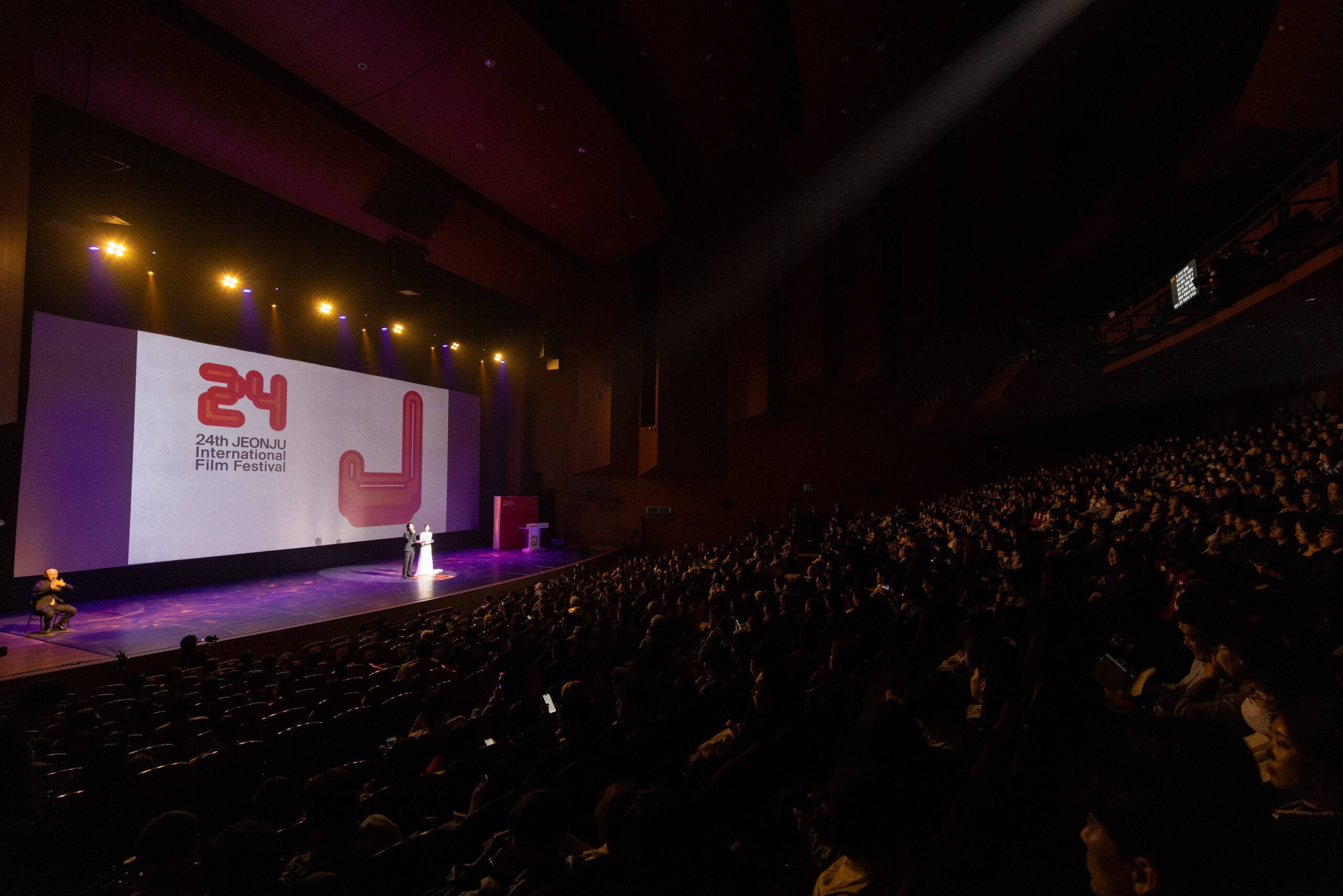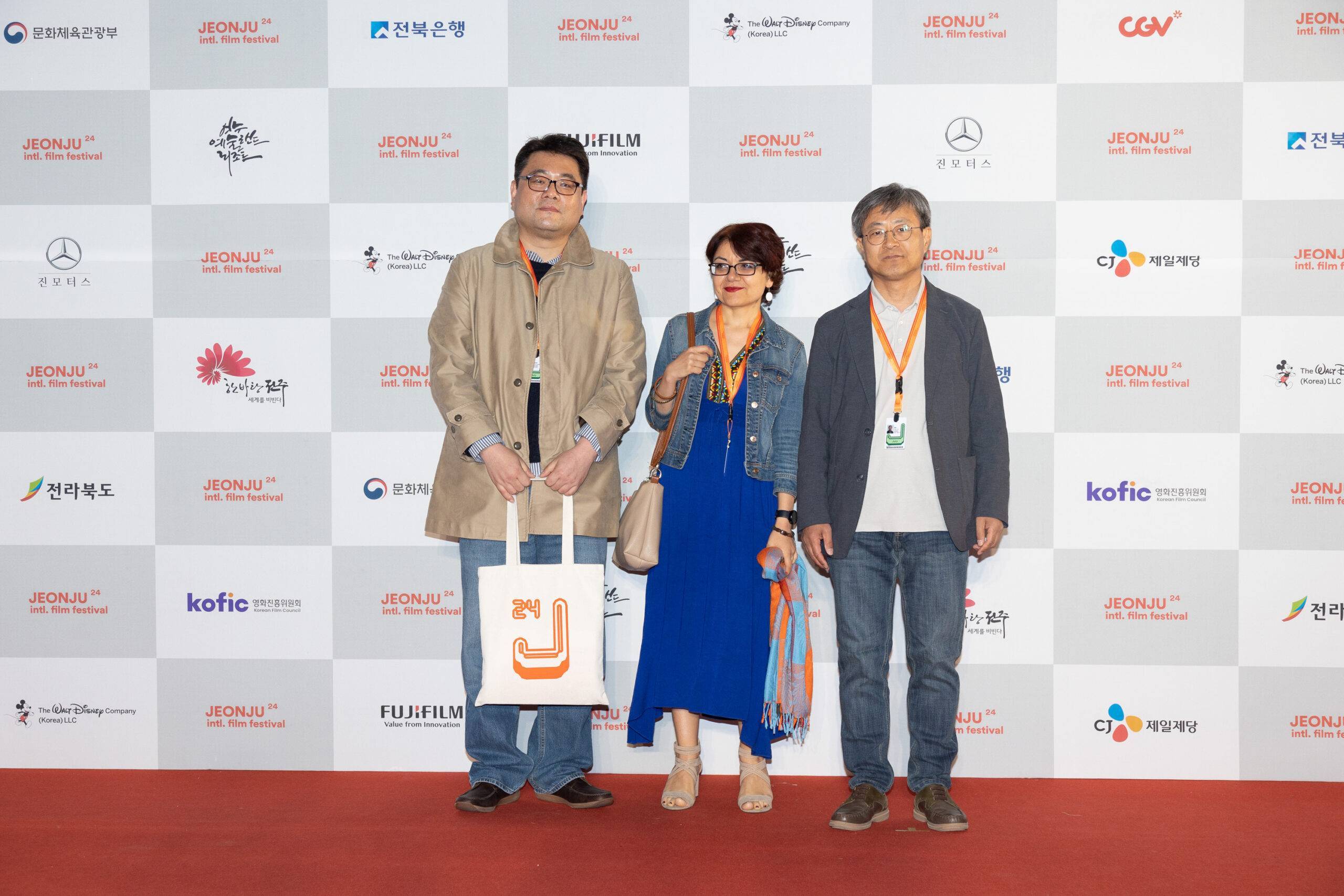AYGUN ASLANLI`S NETPAC DIARY
“The membership of AUF to NETPAC (Network for the Promotion of Asian Cinema) is bearing its fruit. AUF will continue to support the participation of our film critics in world festivals for the integration of Azerbaijani cinema into the world.” AKI.AZ
Jeonju International Film Festival, which is held in Jeonju city of the Republic of Korea since 2000, is considered one of the important festivals of Asia. This year, the 24th festival is hosted by Jeonju City Hall and a mayor Woo Beom-Ki is the president of the festival. This year the festival was held under the motto of “Beyond the frame”. As festival directors Min Sungwook and Jung Junho said in the opening ceremony, the main goal of the Jeonju Film Festival is to give a platform to films that break the usual frames, offer new visual solutions, new narratives and new film characters that offer original approaches.
Jeonju International Film Festival consists of 15 different competitive and non- competitive sections, such as “International Competition”, “Korean competition”, “Korean Competition for shorts”, “Frontline”, “Expanded films”, “World cinema” (mainly, classical films are screened), “Masters” and etc. There are at least two prizes for each of the competition sections, and depending on the category of the prize, they are supported by financial resources ranging from 1,000,000 won (about $700) to 20,000,000 won (about $16,000). In addition, there are awards established by the festival`s sponsors, as well as a special NETPAC award. I was also participating in the 24th JOENJU film festival as the chairman of the NETPAC jury. Together with other 2 members of our team Korean film critics Kim Hyung Seok and Choi Yun reviewed 11 full- length feature and documentary films produced in Asian countries (China, Japan, Korea, Iran, Mongolia, etc.) during four days and among them, we awarded the Japanese film “Stonewalling” (directed by Ji Huang, Ryuji Otsuka), which stood out for its interesting and extraordinary narrative, visual solution, dramatic structure and topicality, with layers and courage, attracted our attention more than others.
Actually, we didn’t have a chance to see the films of other sections because the screening program of the NETPAC jury took up all our time. It was given to priority to classical narrative and poetic elements of cinema in the films we watched. In most of them, the stories took place against the background of the pandemic, but this was not just a detail that indicated the time of the film.The authors turned the pandemic into a character that plays an important role in the dramaturgical structure, and tried to investigate and understand its psychological and economic consequences.
I should also mention that there is also a production-market program called “Jeonju Project” that will be interesting for Azerbaijani filmmakers.The aforementioned program consists of sections called “Jeonju lab”, “Next edition”, “Work in progress” and is engaged in the production and promotion of independent, experimental, art-house film projects.Those who are interested can get detailed information about the programs in the “Jeonju project” section of the jeonjufest.kr website.
What I wrote was, as they say, the official part. Now time for artistic part, the enviable moments. The festival was celebrated as if a holiday with enthusiasm by all city residents. For comparison, let me tell you, May 5 was one of Korea’s national holidays, but I didn’t see any changes in the life of the city, no special holiday mood, it was like an ordinary day. However ,during the eight days of the film festival it was quite possible to see people, mostly young ones, carrying the accessories of festival on the streets. Moreover, there was a special store where those accessories – T-shirts, bags, hats, notebooks, pens, etc. with the emblem of the festival werebeing sold and was full every day. Around the cinemas where the screenings were held, volunteers with phosphorescent sticks in their hands were regulating traffic and the movement of cars, preventing congestion, and live concerts were held in front of the cinemas. In short, a real holiday!
And, of course, all screenings were with ticket. Even for jury members. But these tickets were bought by the organizers and presented to the jury every morning. We all were watching the films together with the audience in the hall, and as soon as the film ended, we should leave the hall immediately – the participation of the judges in the film discussions as well as the discussion of the films watched by one jury team was not allowed to carry with the other one.
During my eight days in Jeonju, I met several film critics and producers from Hong Kong, Japan, and Korea. Although many of them have information about the cinema of countries closer to them, such as Kazakhstan and Kyrgyzstan, but they know almost nothing about Azerbaijani cinema. Therefore, they asked lots of questions: what is the level of film production, how many films are produced every year, which topics are preferred? I answered timidly, “the only source of funding is the state; It’s not totally pleasant to say that the film has not been produced for two years.
Fortunately, we have an independent cinema, they know Elvin Adigozal from Busan and Hilal Baydarov from Tokyo film festivals. When Japanese producer, program director of Tokyo film festival Ishiyama Shozo, heard that I was coming from Azerbaijan, said, “Oo! Hilal Baydarov!” then told the people sitting at our table about the movie “Crane Lantern”.
After this eight-ten-day wonderful experience that I gained with the support of Azerbaijan Union of Filmmakers, I came to the conclusion that when we say film festival, we mainly focus on Europe. However, there are monumental festivals that do not follow the conjuncture network of modern trends and do not make divisions such as “themes of the third and fifth world countries” on the Asian continent. It would be good to people to consider these too when looking for festivals to send our films to.
By the way, when I underwent two days of non-stop rain, my curiosity got stronger and I asked and learned that Koreans also write romantic statuses and share poems on social media when it rains.
Aygun Aslanli





